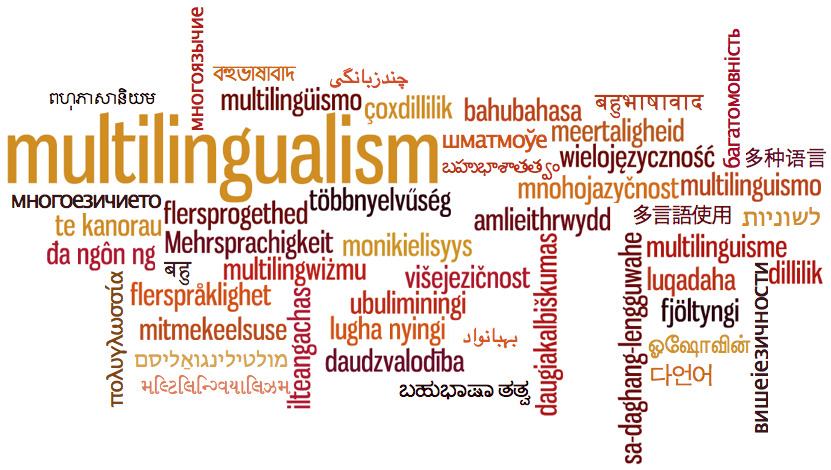
America is exceptional in many ways, not all of them so good. One way which falls into this “not so good” category is an inordinate pride in speaking and teaching one language only, namely English. Pride is often a good indicator of self-righteousness in individuals, and so it is culturally for America. Though English as a language is no better or worse than any other language in conveying ideas, we doggedly persist teaching English only in virtually every school in America.
It may be different in other parts of the country, but here in California where the most recent census indicates that over 50% of our population is hispanic we have the opportunity to shift one unfortunate aspect of our American “exceptionalism,” namely by providing multicultural multilingual education and literacy for every child.
All language is metaphor, a symbolic system of communication based on culturally acquired meaning constituting the primary aspect of a nominal, meaning word-based, reality. Each language, itself an outgrowth of its own culture and history, contains idioms, metaphors and meanings particular to that culture. The phenomenon of human consciousness, its underlying basis and functioning still not fully understood, results in a compulsion to communicate socially. As social animals communication between people takes many forms, visual, auditory, physical, and so forth. We use our entire sensory apparatus for both perception and communication of what’s perceived. This rich tapestry of impressions, the playground of consciousness, has produced thousands of languages over time, most of which are now extinct. Languages continue to disappear as global communication expands and the relative isolation of people gives way to broader social contact.
As a modern, sophisticated nation, America is mostly alone in teaching one language only and actively avoiding teaching literacy and fluency in multiple languages. European children are taught and raised to speak multiple languages, often three or more. A customary education in Europe is by nature multilingual and multi-literate. Here in America, we teach language almost as an afterthought in the higher grades in elementary school. This approach denies students the richer immersive experience of learning another language in the way they learn English, that is by being surrounded by people speaking English in the context of daily life from its very beginnings. It is in young childhood that our natural facility with language is engaged most fully, and at this same stage multiple languages can be introduced without confusion. In later years, long after formative language skills are operational, a second or third language is much harder to learn.
Jobs may come and go along with technological change, the economy will shift and sway, but communication will continue. Those who can move between the idioms of multicultural multilingualism will have the advantages of greater cultural understanding and empathy, skills America needs to develop to survive well in the global village.
Our granddaughter has just completed kindergarten while attending a bilingual school. With no prior experience in Spanish, she now communicates with non-English-speaking kids at the playground and moves between English and Spanish comfortably. She is aware that she is learning two languages, a major developmental milestone she already appreciates. Foolishly, I asked her what she was going to do this summer to help her from forgetting Spanish. She looked at me like I was a child and straight-forwardly replied, “Papa, I will always know Spanish.”
The three top languages spoken by the people on this earth are 1 Chinese languages (yes there are two main languages and both use the same dictionary. 2. Spanish, 3 English. Any time a person learns another language, they are enriched. I spoke with a surgeon in Havana, Cuba. She speaks fluent Russian and Spanish. We conversed in halted English. She wishes to become more proficient in English because it is the only language to publish bleeding edge medical technology. Yes, English is important and it is the most common second language learned in earth.
English has indeed become a global language and the fact that people in other countries learn English provides a good model for the education we should be providing our children. Multilingualism encourages expanded cultural understanding and respect and as you say “enriches.” Thanks for your comment.
It may be very good to learn another languagem bur s country must have a common languagem because it is the cement thatbands any nation, In the case of America this must be considered because if you do not , you will have aTower of Babel on your hands. Just consider the case of Canada, where a minority want control of the majority and this has led those who seek to divide the country on language. Like it or not DEMOCRACY means Majority Rule, and that cannot be put aside, even if a minority fear that their language is in danger if dying. Here again charlatans have used language as a weapon to divide family against family and brother against brother.
Perhaps my own case was defending the Franco-Amerindians in Canada mainly in Kebekm who deny their Native American heritage and call themselves FRENCH, when in fact they are a Metis people and not French, nor will ever be French!
Thanks for your comment. I am not suggesting learning English is unimportant, but that being multilingual provides advantages which reflect the reality of being in a multicultural society.